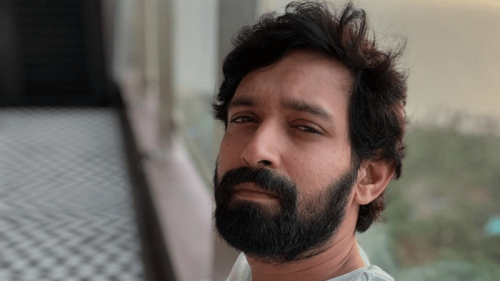THANKS to his trademark Mao suit and Elvis-style sunglasses, and to North Korea's nuclear programme, Kim Jong-il has become an instantly recognisable figure and his country a regular feature in news headlines. Yet most people know little about the “hermit kingdom”; a title first applied to ancient Korea, but since judged perfectly suited to the modern North.
It is successful not only at limiting its citizens' access to information - only senior officials can use the internet, for example - but also foreigners'. Intelligence agencies around the world are reduced to poring over photos of Kim to ascertain his state of health and therefore the country's stability. Much of what we know about him comes from the memoirs of his former sushi chef.
But over the years, more information has emerged. The border with China has become porous, with people moving back and forth and some in the area using Chinese mobile phone networks with smuggled handsets.
Until 1987 no visitors from “non-aligned” countries were allowed; by 1993, around 50 western tourists a year were visiting. Now just under 2,000 a year go there, along with up to 30,000 Chinese tourists, accompanied by guides at all times. Photographs are inspected - and often deleted - before tourists leave. And it is still relatively rare for journalists to win access.
And then there are the defectors, who paint an alarming picture of widespread human rights abuses, although many of their accounts date back to the 90s.
North Korea is the world's only communist dynasty Kim Jong-il inherited power on the death of his father Kim Il-sung in 1994, although the latter remains eternal president and his son is instead Dear Leader. Official biographers say that the 67-year-old was born in a military camp on Baekdu Mountain, his birth foretold by a swallow and heralded by the appearance of a double rainbow over the mountain and a new star in the heavens. According to Soviet records, however, he was born in a Siberian village.
In addition to his celestial endorsement, Kim is a three-time elected member of the country's rubber-stamp parliament. The country goes to the polls once every five years and there is one candidate per seat; turnout in 2003 was 99.9 per cent.
Kim is said to have a fear of flying; his state visits to Russia and China have been made by armoured train. Only once is his voice thought to have been broadcast in 1992, during a military parade, he told the crowd “Glory to the heroic soldiers of the People's Army!”
While many have portrayed him as a clownish and eccentric figure, others say he is smart and even witty. Shin Sang-ok - a South Korean film director who was kidnapped with his actor wife in 1978 so that he could build a North Korean film industry - has described a man naive in some ways but shrewd in others. He said Kim, a huge film buff, tended to regard Rambo and James Bond films as records of reality. Yet at one party, when band members rapturously applauded their leader, Kim turned to Shin and told him “That's all fake.”
According to North Korean media, Kim's accomplishments are legion. His official biography says he has composed six operas and according to the South Korean news agency Yonhap, he has described himself as an internet expert.
Kim's successor
He is thought to have finally annointed the youngest of his three sons Kim Jong-un as his heir and “Brilliant Comrade”, following his reported stroke last year. Even less is known about this leader-in-waiting. Educated in Bern, Switzerland, the 25-year-old is said to be a basketball fan. His former classmates say he also spoke highly of Jean-Claude Van Damme.
The Dear Leader's eldest son, Kim Jong-nam, is believed to have fallen from favour after Japanese authorities caught him trying to enter their country on a fake passport in 2001, apparently seeking to visit Tokyo Disneyland.
But most analysts suggest that whoever takes over will be essentially a figurehead or arbitrator rather than a sole ruler. They suggest the elite is composed of three broad interest groups rather than factions - the Kim family, the military and other officials - who know that their fates are intertwined and who all wish to maintain the status quo. Whether their planning for life after the Dear Leader works in practice will be another matter; some believe factionalism or a military takeover could lead to the collapse of the state.
North Korea is famed for its Arirang mass gymnastic display - particularly the moments when thousands of perfectly choreographed performers hold up coloured cards to create huge and rapidly changing mosaic images. Football is extremely popular and the national team has just qualified for the World Cup, for the first time since 1966. North Koreans also like volleyball and there's a flying-saucer shaped baseball stadium in Pyongyang.
Other landmarks include the 105-floor pyramid-shaped Ryugyong Hotel, which has been under construction since 1987, several revolving restaurants and two huge boulevards - 110m wide - in the city.
Pyongyang's eight cinemas are said to be frequently closed due to lack of power; when open, they screen domestic propaganda movies with inspiring titles such as The Fate of a Self-Defence Corps Man.
The state news agency KCNA runs a curious combination of brief news items such as its coverage of Clinton's visit, angry denunciations of the treachery of “puppet authorities” in South Korea and long tales of the leadership's care for ordinary people. Tuesday, for example, saw the publication of a story about Kim Jong-il inspecting the cabbage harvest in autumn 1979. “The meticulous care shown by the leader for winter kimchi [pickled cabbage, a dietary staple] is still conveyed as an epic of great love,” it concluded.
In the 60s, North Korea was one of the most industrialised of East Asian nations. But there is no clearer way to see its stagnation than to compare it to its neighbour, China - once a poor relation, now a capitalist powerhouse. Travel down the river which marks the two countries' border and the disparity is striking. On one side, neon blazes at night; on the other, there is almost complete darkness.
Fuel shortages, exacerbated by sanctions, mean that heating can be problematic in a country where temperatures can fall to -10C or lower in winter. Possessions are limited; only around half of households have bicycles, leaving most to walk to work.
From 2002, the country has experimented with economic reforms, such as opening markets - although stock is usually very limited. Higher-ranked citizens can enter the department stores for foreigners and senior officials, although foreign currency is often required. Although Chinese goods are now available, most products are unique to North Korea - such as Vinalon, a widely used synthetic textile made from limestone.
But many analysts suggest that the North has now virtually given up on such reforms. And in May, as tensions on the peninsula escalated, it announced that it was tearing up the contracts for the Kaesong joint industrial complex it established with the South - a rare source of much-needed income, which employed 30,000 North Koreans.
In the countryside, the situation is more pressing than in the towns. A crippling famine in the mid-1990s killed hundreds of thousands of people and although the situation has improved, the country remains highly dependent on food aid - the World Food Programme estimates that 8.7 million of its 23 million inhabitants need assistance. The range of food items is extremely limited and meat is a luxury.
Tense relations
North Korea has a long history of tense relations with other regional powers and the West - particularly since it began its nuclear programme. China is regarded as almost its sole ally; even so, relations are fraught, based as much as anything on China's fear that the collapse of the current regime could lead to a flood of refugees and growing US influence on its border.
Although North Korea is thought to have begun seeking nuclear weapons as early as the 60s, because it feared attack, the issue first began making waves in 1993, when it said that it planned to withdraw from the Nuclear Non-Proliferation Treaty and refused to allow inspectors access to its nuclear sites. As relations deteriorated, the US braced itself for war - averted when a visit by Jimmy Carter helped to pave the way for a breakthrough deal.
Despite ups and downs in the relationship, Madeleine Albright - then secretary of state - visited Pyongyang in 2000 and an arms control treaty was agreed. With the arrival of George Bush - who deemed the North the third member of the “axis of evil”, alongside Iraq and Iran - all bets were off. In 2006 the North's first nuclear test brought international condemnation. But not long afterwards, six-party aid for disarmament talks began.
Those hit a wall last year after Washington and Pyongyang clashed over how to verify disagreement. Tensions were also rising on the peninsula thanks to the South's election of Lee Myung-bak, who ended his predecessor's “sunshine policy” of free-flowing aid.
Since then, the North has ratcheted up its rhetoric, tested another nuclear device and launched a Taepodong 2 long-range rocket. Though the rocket flew rather further than on its first test three years ago, when it disintegrated within seconds, it was far from successful. Experts believe North Korea has not yet been able to miniaturise an atomic weapon to place on a missile, but it may not be far off. The main fear is not that it will use such weapons itself, but that it will sell them to other states.
On the plus side, most experts regarded its escalating actions this year as a bid for attention from Barack Obama's administration - a bid that appears to have been successful, given Bill Clinton's visit. While primarily concerned with the fate of the two US reporters, and billed by the White House as “solely private”, analysts believe it will in time lead to renewed talks.—Dawn/Guardian News & Media











































Dear visitor, the comments section is undergoing an overhaul and will return soon.